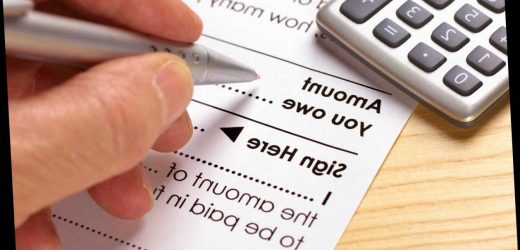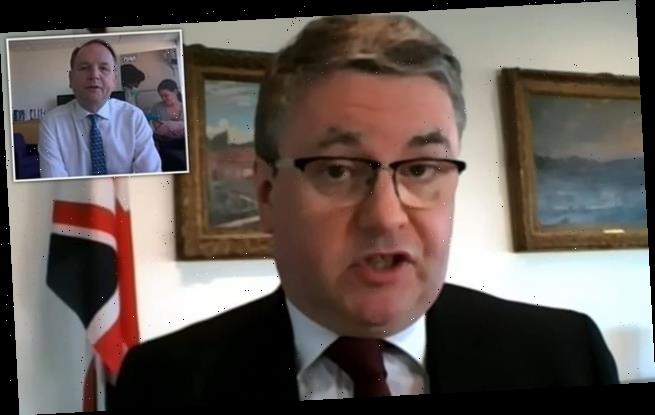HARD-UP Brits have been racking up debts and struggling to make ends meet as a result of the Covid crisis.
Lower income households are twice as likely as richer ones to have increased their debts during the pandemic.
? Read our coronavirus live blog for the latest news & updates…
Also, more than 8 million Brits have had to borrow cash just to get by.
But Brits have been thrown a lifeline by the financial watchdog Financial Conduct Authority, and have until the end of the month to apply for a payment holiday.
A payment holiday that's taken as part of these proposals won't be reported as missed payments on your credit file.
All payment holidays will end on July 31.
What is a payment holiday and should you apply for one?
PAYMENT holidays are when a lender agrees to pause your monthly repayments for a set amount of time.
This has to be agreed in advance, so don't stop making your repayments until your bank has given you permission to do so.
The majority of lenders are now offering payment holidays, so get in touch with your bank to find out what help it can give you.
You will need to do this before October 31 as this is when the blanket help is due to end.
Most of the time, it'll require you to fill out an online form.
Typically, payment holidays are offered in extreme circumstances and are designed as an emergency measure to help you through a difficult financial time.
If you think you need to take one, you should speak to your lender to discuss your options – but do note that the break in payments doesn’t remove any debt or financial obligations.
Most lenders will also still charge interest during this time, so be aware that these costs will keep building up.
You should also always continue to make your normal payments if you’re financially able to.
Sue Anderson, head of media at debt charity StepChange, said: “If you can continue to make your normal payments without difficulty, then you should.
“Any temporary measures being offered by lenders don’t remove financial obligations – they are designed as an emergency measure to help you get through a period where your income may have taken a serious knock.
“However, if you need to use them then you shouldn’t hesitate to talk to your lenders.
“While taking a payment break would usually be noted on your credit file, the credit reference agencies have confirmed that, during the current crisis, this should not have a future influence on your credit status.”
However, lenders can still see whether you've paused any payments through other methods, like Open Banking.
They can then use this information to decide whether or not they will lend to you – meaning a payment holiday could still have an impact on your ability to borrow money in the future.
So which debts can you apply for breathing space on? Here are six payment holidays you can get:
Mortgage payments
If you’re finding it difficult to keep up with your mortgage repayments, you can apply for a payment break.
You have until the end of the month (March 31) to apply, and you’ll be able to freeze repayments until July 31.
However, it’s only available to any household that hasn't already had a payment break of more than six months.
If you miss the March deadline, you still might be able to agree a payment holiday with your lender up until the end of July – although you’ll need to check if this is possible.
MoneySavingExpert has previously warned that taking a payment break may actually stop you from getting a mortgage, even though they won't affect your credit score.
Asking for a mortgage holiday shouldn't be taken lightly – you should only really apply for one if you can't afford your repayments.
This is because interest will continue to accrue during your payment break, which means your overall repayments will increase.
In fact, taking a mortgage payment holiday could cost you £2,769 in higher repayments.
Credit card bills
Credit card and personal loan customers who are hard-up have three weeks left to apply for a payment holiday.
But you won’t be able to apply for a holiday if you’ve already had a payment break of more than six months.
You have until the end of the month to apply and the payment holiday will come to an end on July 31.
If you’ve already had a repayment break but you’re still struggling to keep up, lenders may cancel your debt interests and charges.
Lenders were told by the FCA last year they must consider suspending, reducing, waiving or cancelling any interest, fees or charges to prevent customer debts getting out of control.
It only applies to the debt incurred as a result of a payment break or free overdraft, as long as customers are keeping up with the agreed payment plan.
Buy Now, Pay Later
You have until the end of the month to freeze your Buy Now, Pay Later repayments.
These schemes let customers pay for their shopping in interest-free monthly instalments to spread the cost, and common providers include Klarna, Clearpay and Paypal.
But if you’ve already taken a payment holiday, you won’t be able to apply for another.
Your payment holiday will come to an end on July 31.
According to the Money Advice Service, your repayments will restart automatically after this point and the ones you’ve missed will be added to your balance.
It says its in your interests to meet payments if you can afford to, but if you’re still struggling to cope after the payment holiday ends, you should talk to your provider as soon as you can.
The FCA clamped down on buy now, pay later providers last month, and these schemes will now come under regulation by the financial watchdog.
It comes as credit reporting firm Credit Karma warned shoppers could be spiralling into “unmanageable debt” after revealing Brits spent £2.3bn through these schemes to help fund Christmas.
Car finance holidays
Certain car costs can be frozen by struggling customers while they get back on their feet.
Car finance agreements that are eligible for the payment holiday, according to Money Advice Service include:
- personal contract plans
- personal contract hire agreements
- hire purchase agreements
- conditional sale agreements
- credit agreements to purchase a vehicle such as a credit sale
However, you should contact your car company to check exactly which agreements can be paused.
If you’ve already taken a payment holiday, you can’t apply for another one.
You have until March 31 to apply for a payment holiday, which will end on July 31.
If you’re still struggling after this point to meet your repayments, you should talk with your car company about what additional help could be available to you.
High-cost short term credit holidays
High-cost short term credit customers, such as those with payday loans, will only be able to apply for a one month payment holiday.
You have until March 31 to apply for one and it will end at the end of July.
If you’ve already taken a payment holiday, you can’t apply for another one.
If you still can’t meet the costs, you may be able to extend your payment holiday or ask for further help by talking to your lender.
Pawnbroking holidays
You can take out a pawnbroker payment holiday if your finances have taken a hit due to Covid.
You have three weeks to apply for it, and like nearly all the other payment holidays, it will come to and end on July 31.
This means you’ll have more time to recover the item you pawned, as the pawnbroker should suspend the sale under the payment holiday.
If you’re coming to the end of your payment holiday and are still struggling, take to your lender about what help is available.
They should provide tailored support which is suitable for your personal circumstances.
A ban on bailiff evictions has been extended until March 31, 2021.
Find out how much better or worse off you’ll be using this Budget 2021 tax calculator.
Budget documents also revealed the Government will trial a no-interest loan scheme to help low-income households pay off any unexpected debts.
Source: Read Full Article



